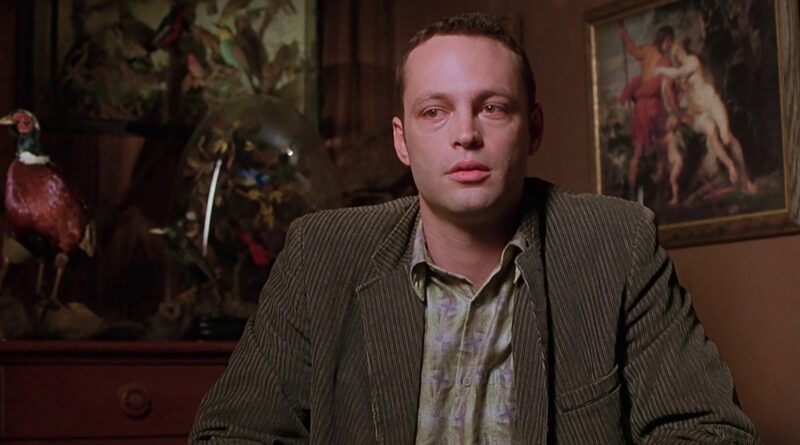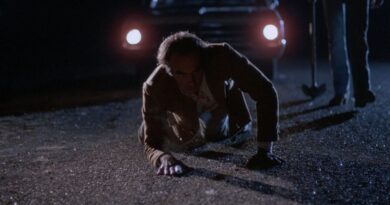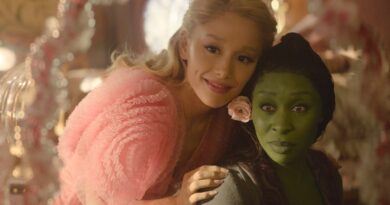Psycho (1998)
Countless films carry the label of “remake,” but Gus Van Sant’s Psycho is one of the few films that comes closest to the true sense of the word; it not only tells the exact same story and features the exact same characters as Alfred Hitchcock’s 1960 film, Van Sant makes it a point to set up his shots in an almost identical way as Hitchcock. Furthermore, Joseph Stefano’s original screenplay was so barely altered that he’s also credited as the writer of this new film. Likewise, Bernard Herrmann, who died in 1975, retains credit as composer – although Danny Elfman and Steve Bartek are both acknowledged for producing and adapting the score. Unlike the original film, and I find this odd, no credit is given to Robert Bloch, author of the novel on which both original and remake are based, until midway through the closing credits.
The problem here really isn’t that a beloved film has been remade, however much people want to say that. It’s that Van Sant either wasn’t allowed or wasn’t willing to put more of his stamp on it. For the most part, he just apes the way Hitchcock shot his version. There’s no Van Sant touch – save for a precious few alternate shots I’ll discuss in a minute. For me, the appeal of a remake depends on what the new director brings to it; if the point is to simply copy what the director of the original has already done, you’ll probably get the same kind of praise an office temp gets for pressing the start button on a xerox machine.
The narrative changes are very, very few: What once took place in 1960, Hitchcock’s present day, now takes place in Van Sant’s present day of 1998; it has been shot in color, which means the infamous shower scene most certainly doesn’t use chocolate syrup as stage blood; the amount of money embezzled by Marion Crane, now played by Anne Heche, has been adjusted for inflation from $40,000 to $400,000; the iconic Bates house at the top of the hill has been redesigned to be more modern, less Victorian. All of this is expected. Not quite so expected are the aforementioned altered shots, many of which are consistent with the film’s R rating. An example: When Norman Bates, now played by Vince Vaughn, spies on Marion through a peephole as she undresses, we can hear him unzipping his fly and feverishly masturbating. Another example: When the shower victim succumbs to multiple stab wounds, we’re given a view of the body that in 1960 would have been deemed pornographic.
Vaughn’s job as Norman Bates is a thankless one. Despite a performance that effectively straddles the line between creepy and pathetic, he’s unlikely to escape the scrutiny of audiences already familiar with Anthony Perkins’ original 1960 performance – which also straddled the line between creepy and pathetic. It doesn’t help that both the main character and his story have lost their air of mystery, and the twists are no longer surprising; we go into this film already knowing what will happen, and to who, and why, simply because of the enduring popularity of Hitchcock’s film. Nevertheless, Vaughn does the best he can given the situation. The same can be said of Heche, as well as of Viggo Mortensen (replacing John Gavin), William H. Macy (replacing Martin Balsam), Rance Howard (replacing Vaughn Taylor), and Philip Baker Hall (replacing John McIntire).
Unfortunately, the same cannot be said of Julianne Moore, who plays Marion’s sister Lila Crane. As portrayed by Vera Miles in 1960, Lila seemed genuinely concerned about … the situation at hand (popularity notwithstanding, I steer clear of spoilers); she was demanding, insistent, and anxious, not to be difficult, but simply because answers weren’t forthcoming, and she believed time was of the essence. Although Moore delivers almost verbatim Miles’ original lines of dialogue, she doesn’t capture her character’s anxiety or desperation. She’s aloof, standoffish, and seemingly uninterested in what’s going on. We’re more made to notice the overall redesign of Lila Crane, who now listens to death metal on a Walkman. I put more blame on Van Sant’s directions than on Moore; no actor of her caliber would choose to be so lackluster, especially on the heels of a much deserved Oscar nomination for Boogie Nights.
I haven’t said much about the plot. But then again, I didn’t really need to. Most of you know it. For those of you that don’t, you’re actually better off; you’re less likely to know the story’s two major secrets, even though far too many clips of Hitchcock’s film have seen that very secrecy horribly undermined. Suffice it to say, both versions of Psycho are about a man, his mother, and their … very unorthodox relationship. That doesn’t mean both versions are equal; though hardly the worst movie ever made or even the worst remake ever made, it’s such an artistic disappointment. It’s more than derivative – it’s virtually a carbon copy. If I were Alfred Hitchcock, I would be turning in my grave, because God knows I wouldn’t want a subpar remake of my movie to be dedicated to my memory.




